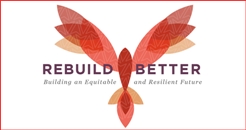 5 insights from Business Fights Poverty Online 2020
5 insights from Business Fights Poverty Online 2020
From an article by Business Fights Poverty
Business Fights Poverty 2020 was held online in July 2020 with 1,000 participants from all around the world listening to 70+ speakers across nearly 40 sessions and 5 themes. The organisers picked out 5 insights that emerged:
1. This crisis presents an opportunity to demonstrate and embed purpose into business
In the speed and breadth of their response to the pandemic, companies have revealed the depth of their purpose (or lack thereof). As we start to think about rebuilding better, there will be increasing demand from employees, customers, investors and other stakeholders for companies to more actively articulate and demonstrate their wider societal purpose beyond profits (recognising that firms with purpose also do better financially). This means, for example, tackling inequality, protecting human rights, supporting climate action, and across all of that being better at, and more transparent about, measuring impact.
2. Business has a key role to play in helping the most vulnerable across their value chains survive and thrive
The pandemic has exposed and exacerbated existing fragilities in global value chains - whether that is micro, small and medium enterprises without the cash flow reserves to endure the economic impact of lockdowns, or hourly workers without access to sick pay or social protection. Many companies, before COVID-19, had been working on tackling wage inequality within their workforces and strengthening the resilience of small-scale suppliers and distributors. COVID-19 has added a new level of urgency to these efforts.
3. Now is the moment to invest in building future skills and personal resilience
COVID-19 has been hugely disruptive to the world of work and learning, accelerating existing trends such as automation and new technology. 100s of millions of jobs are at risk, and for many more physical distancing restrictions have imposed new ways of working. All of this points to an urgent need for upskilling and reskilling workers - both with technical skills, but especially the soft skills that are increasingly demanded by employers.
4. Rebuilding better must involve action on equity
The pandemic has had a disproportionate impact by gender, race and income level. Women have been more exposed to infection, making up the majority of front-line health workers, are in the most vulnerable positions in workforces and value chains, have faced a surge in domestic violence, take on the burden of unpaid care and have been under-represented in decision making. In many respects, this reflects and has exacerbated deeper issues around gender inequality. At the same time, the murders of George Floyd, Breonna Taylor and Ahmaud Arbery have all recently highlighted the urgent need for action against racism.
5. To drive the system-level change needed, we need system-level partnerships
COVID-19 has highlighted how truly interconnected we are and that, with a clear focus, we can come together at scale and with speed to make a difference. The system-level challenges we face - from inequality to climate change - mean that we need to rethink how we partner: shifting from traditional transactional style partnerships to ones that bring together multiple partners - across a company’s value chain, among peer companies, with government and civil society - to drive transformational change.
Read full article here, including possible actions/resources to help address the above.
Retweet about this article:
Geoff Knott, 19/08/2020